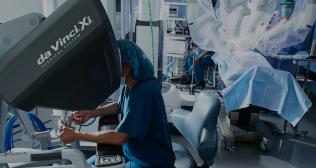
Common Myths and Misconceptions About Bariatric Surgery
Bariatric surgery, often hailed as a life-changing procedure for individuals struggling with obesity is surrounded by myths and misconceptions that can deter people from considering it as a viable option for weight loss. These myths can stem from misinformation, fear of the unknown, or societal stigma surrounding weight loss surgery.
In this article, we aim to debunk some of the most prevalent myths and provide accurate information about bariatric surgery.
Myth 1: Bariatric surgery is the "easy way out" for weight loss.
Fact: Bariatric surgery is anything but easy. It is a major surgical procedure that requires careful consideration, preparation, and lifelong commitment to lifestyle changes.
While the surgery itself may lead to rapid weight loss initially, patients must adhere to strict dietary guidelines, exercise regularly, and attend follow-up appointments to maintain their weight loss and overall health. It's important to recognize that bariatric surgery is a tool to facilitate weight loss, but it still requires significant effort and dedication from the patient.
Myth 2: Bariatric surgery is only for cosmetic purposes.
Fact: Bariatric surgery is primarily recommended for individuals with severe obesity (BMI of 40 or higher) or those with a BMI of 35 or higher with obesity-related health conditions such as type 2, high blood pressure, and sleep apnea.
It is not solely about cosmetic improvement but rather improving overall health and quality of life.
Many patients experience significant improvements in obesity-related health issues following bariatric surgery, leading to a longer and healthier life.
Myth 3: Bariatric surgery is unsafe and carries too many risks.
Fact: Like any surgical procedure, bariatric surgery does carry risks, but advancements in medical technology and surgical techniques have significantly reduced these risks over the years. The majority of patients who undergo bariatric surgery experience successful outcomes with minimal complications.
Patients need to discuss their concerns and medical history with a qualified bariatric surgeon who can assess their risk factors and provide personalized recommendations.
Myth 4: Bariatric surgery is a quick fix for obesity.
Fact: Bariatric surgery is a tool for weight loss, but long-term success depends on lifestyle changes and ongoing support. While patients may experience rapid weight loss in the months following surgery, maintaining that weight loss requires a commitment to healthy eating habits, regular exercise, and behavior. Bariatric surgery is not a one-time solution; it requires lifelong dedication to maintaining a healthy lifestyle.
Myth 5: Bariatric surgery leads to severe nutritional deficiencies.
Fact: While it's true that bariatric surgery can impact nutrient absorption, nutritional deficiencies can be managed through proper supplementation and dietary guidance. Patients are typically advised to take vitamin and mineral supplements following surgery to prevent deficiencies and maintain optimal health. With regular monitoring and adherence to dietary recommendations, nutritional deficiencies can be effectively managed in the long term.
Myth 6: Bariatric surgery is reversible.
Fact: While some procedures may be reversible, such as adjustable gastric banding, others, like gastric bypass or sleeve gastrectomy, are considered irreversible. Reversal procedures are complex and carry their own set of risks, so it's important for patients to carefully consider their options and make an informed decision before undergoing bariatric surgery.
In conclusion, bariatric surgery is a valuable treatment option for individuals struggling with obesity and obesity-related health conditions. However, it's essential to separate fact from fiction and dispel common myths and misconceptions surrounding this life-changing procedure. By seeking accurate information, consulting with healthcare professionals, and understanding the realities of bariatric surgery, individuals can make informed decisions about their weight loss journey to improve their overall health and well-being.
Categories
Clear allMeet the doctor

- General Surgery | General Surgery
-
20 Years
-
1100



















